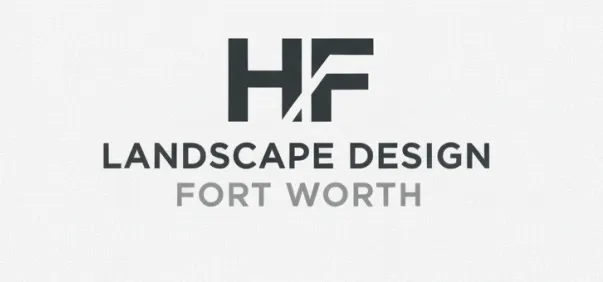Outdoor Kitchen Construction Fort Worth
Outdoor Kitchen Construction in Fort Worth
So you want to cook and entertain outside without running back and forth to the house, right? That's what outdoor kitchen construction does. Basically building complete cooking and prep space in your backyard—installing grills and appliances, creating counter workspace, adding storage and amenities, making outdoor entertaining actually functional. We build outdoor kitchens all over Fort Worth—backyards in Ridglea creating full cooking setups, poolside areas in Tanglewood with complete bar and grill stations, newer homes in Walsh Ranch upgrading basic builder patios. Texas weather makes outdoor living popular—warm evenings perfect for grilling, entertaining outside most of year, wanting cooking space that doesn't heat up your house during brutal summers. Outdoor kitchens provide that—complete functional cooking area keeping mess and heat outside, space designed for how people actually entertain.
Here's the thing about outdoor kitchens in Fort Worth—they're complex projects requiring coordination of multiple trades, not simple weekend project. Need proper foundation and structure, gas and electrical utilities, plumbing if you want sink, weather-resistant materials surviving our climate, appliances rated for outdoor use. We've fixed or rebuilt outdoor kitchens done wrong—countertops cracking from inadequate support, cabinets falling apart from moisture exposure, gas lines installed incorrectly creating safety hazards, electrical not weatherproofed properly, structures deteriorating after few seasons because wrong materials were used. Building outdoor kitchen requires engineered foundation, proper utility installation by licensed trades, materials specifically rated for exterior use, construction techniques creating durable weather-resistant structure. Plus significant outdoor kitchen construction often requires permits in Fort Worth—gas, electrical, structural work all have code requirements.
We handle complete outdoor kitchen construction—design and planning, permitting and coordination, foundation and structure building, utility installation, appliance integration, countertops and finishes. Not just throw together some cabinets and grill. We design outdoor kitchens working for how you entertain, coordinate all trades properly, build structures lasting in Fort Worth weather, install everything to code, create finished spaces that are functional and attractive.
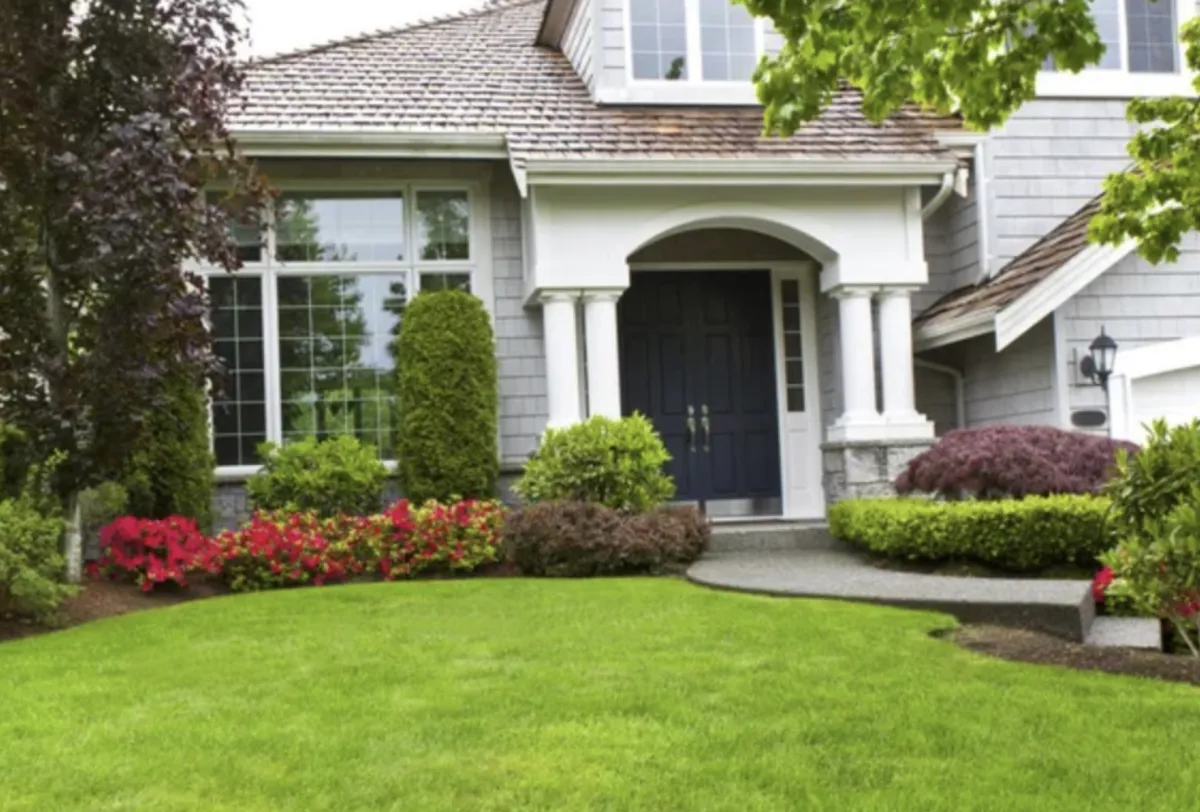
Design and Planning Process
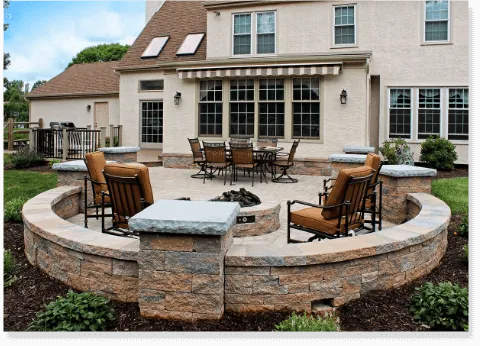
Understanding cooking and entertaining style—determining appliance needs, planning workflow and prep space, considering serving and bar areas, accommodating guests and seating, designing for actual usage patterns. Before designing anything we discuss how you actually cook and entertain. Big parties needing extensive prep space? Intimate dinners where grill is main focus? Want full cooking capability or just grilling basics? Bar area for serving drinks? Different entertaining styles need different designs. We plan outdoor kitchens matching how you'll actually use them, not generic setup that might not fit your needs.
Appliance selection and layout planning—choosing grill size and type, determining additional appliances needed, planning side burners and warming drawers, considering refrigeration and ice makers, creating efficient work triangle. Appliance choices drive entire design. Built-in gas grill versus charcoal? Size based on typical cooking needs? Side burners for sauces or sides? Warming drawer keeping food hot during serving? Refrigerator and ice maker? We discuss appliances matching your cooking style and budget, plan layout creating efficient workspace—similar to indoor kitchen workflow principles.
Counter space and storage design—planning adequate prep areas, determining storage needs for utensils and supplies, designing cabinet configuration, considering outdoor-rated materials, creating functional workspace. Outdoor kitchens need proper counter space—prep areas near grill, serving space for plated food, bar area if desired. Storage for utensils, plates, grilling supplies, propane tanks if used. We design adequate workspace and storage making kitchen functional, not just appliances with minimal counter forcing you back inside constantly.
Utility requirements and planning—gas line sizing and routing for appliances, electrical circuits for outlets and lighting, plumbing for sinks if included, drainage considerations, coordinating utility locations. Outdoor kitchens require various utilities. Gas line for grill and burners—must be properly sized for all appliances running simultaneously. Electrical for outlets, lighting, some appliances. Plumbing if you want sink—supply and drain both. We plan utility routing carefully, coordinate installation by licensed trades, ensure everything meets code requirements.
Location and integration planning—positioning relative to house and patio, considering prevailing winds and smoke, planning traffic flow, integrating with pool or outdoor living areas, thinking about views and privacy. Location affects outdoor kitchen functionality significantly. Want it near house for access but not so close smoke blows into windows? Upwind from main seating area? Convenient to dining space? Good views while cooking? We assess your property, recommend location maximizing benefits while avoiding problems, plan integration with overall outdoor space.
Professional Construction Process
Foundation and structural base construction—building proper foundation for structure weight, creating level base for counters and appliances, ensuring adequate support for heavy elements, planning utility access, constructing weather-resistant framework. Outdoor kitchen needs solid foundation—countertops, appliances, structure all create significant weight. We build appropriate base—concrete pad or substantial foundation, level construction, adequate support throughout. Foundation includes utility access points, drainage considerations. Structure framing uses materials rated for weather exposure—not standard framing lumber that'll rot.
Gas line installation and testing—sizing line properly for all appliances, routing safely and to code, making proper connections, pressure testing system, ensuring safe operation. Gas work requires licensed plumber in Fort Worth—safety critical. We coordinate proper gas installation—line sized for total BTU load of all appliances, routed meeting code requirements, connections made correctly, system pressure tested ensuring no leaks. Gas work isn't DIY territory—improper installation creates serious safety hazards.
Electrical installation and weatherproofing—installing circuits for appliances and outlets, adding lighting circuits, using weatherproof components rated for outdoor use, ensuring proper grounding, meeting code requirements. Outdoor electrical requires weather-rated components—GFCI outlets, weatherproof boxes and covers, appropriate wiring methods. We coordinate electrical installation by licensed electrician—adequate circuits for appliances, conveniently located outlets, lighting for evening use, everything code-compliant and safe. Outdoor electrical done wrong creates shock hazards and fire risks.
Plumbing installation if applicable—running water supply to sink location, installing drain line and proper slope, adding shutoffs for winterization, using freeze-resistant components, ensuring code compliance. Outdoor sinks need proper plumbing—supply line, drain with adequate slope, shutoff valves for winter protection. Fort Worth occasionally freezes—outdoor plumbing needs consideration for cold weather. Licensed plumber installs everything correctly—proper materials, code-compliant installation, winterization capability preventing freeze damage.
Countertop and surface installation—building substrate supporting countertop material, installing finished counter surfaces, creating proper overhangs and edges, ensuring level installation, sealing appropriately for weather. Countertops need proper support—adequate framing, appropriate substrate, level base. We install counter surfaces carefully—granite, concrete, tile, whatever material chosen. Proper overhang for bar seating if designed. Sealed appropriately for weather exposure. Counters must be level, solidly supported, weather-resistant—not indoor installation methods that won't last outside.
Appliance installation and connection—setting built-in grills properly, connecting gas appliances safely, installing refrigeration units with proper ventilation, testing all components, ensuring everything operates correctly. Appliances get installed carefully—proper clearances for ventilation, secure mounting, connections made correctly, tested thoroughly. Built-in grills require precise installation—proper support, gas connection, surrounding materials rated for heat exposure. We install appliances per manufacturer specs ensuring safe operation and maintaining warranties.
Material Selection for Durability
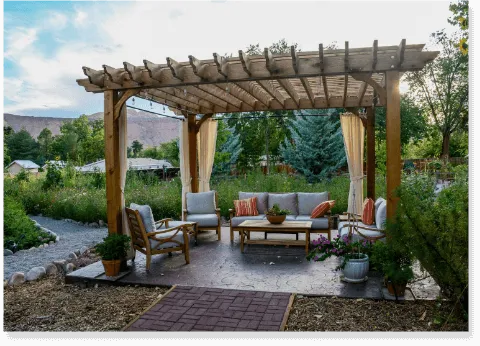
Outdoor-rated cabinet materials—stainless steel for maximum weather resistance, marine-grade polymer cabinets, properly sealed wood options, avoiding materials that deteriorate in weather. Standard indoor cabinets fail quickly outside—moisture, temperature swings, weather exposure cause rapid deterioration. We use outdoor-rated materials—stainless steel is premium choice for durability, marine polymer cabinets resist weather well, properly constructed and sealed wood can work. Material choice affects longevity significantly—cheap indoor cabinets might last two seasons, proper outdoor materials last decades.
Countertop materials for exterior use—granite for natural stone appearance and durability, concrete for custom shapes and finishes, tile for economical weather-resistant option, avoiding materials cracking or deteriorating outside. Outdoor countertops need weather resistance and durability. Granite handles weather extremely well, provides upscale appearance. Concrete offers custom possibilities, very durable when properly sealed. Tile is economical, weather-resistant, endless design options. Laminate and other indoor materials don't belong outside—won't last in Fort Worth conditions.
Structural materials rated for weather—stainless steel framing for premium builds, treated lumber appropriate for exterior, cement board substrates, avoiding standard interior materials. Structure must withstand weather exposure—moisture, temperature extremes, Fort Worth climate. Stainless steel framing is ultimate but expensive. Pressure-treated lumber works if properly detailed and maintained. Cement board for substrates under tile or stone. Never standard framing lumber and drywall—that's indoor construction that fails outside rapidly.
Finishes and sealers for longevity—stainless steel requiring minimal maintenance, sealed stone resisting staining and weather, properly finished wood with appropriate protection, regular maintenance schedule recommendations. Materials need proper finishing. Stone gets sealed preventing staining and weather damage. Wood requires quality exterior finish reapplied regularly. Stainless steel needs occasional cleaning. We finish materials appropriately and provide maintenance guidance ensuring outdoor kitchen stays protected and attractive for years.
Hardware and fasteners for exterior—stainless steel fasteners preventing rust, weather-resistant hinges and handles, quality components rated for outdoor use, avoiding standard hardware that corrodes. All hardware must be outdoor-rated—stainless steel or weather-resistant finishes. Standard hardware rusts quickly outside—looks terrible, fails functionally. We use appropriate hardware throughout—stainless fasteners, outdoor-rated hinges and pulls, components that'll last in weather exposure.
Appliance and Feature Options
Grill types and sizes—built-in gas grills from various manufacturers, charcoal or wood-fired options, size selection based on cooking needs, quality considerations affecting performance and longevity. Grill is centerpiece of most outdoor kitchens. Built-in gas grills are most common—convenient, various sizes and features, professional models available. Some people prefer charcoal or wood-fired for flavor. We discuss options based on your cooking preferences and budget. Size matters—too small and you're constantly cooking in batches, too large wastes space and money.
Additional cooking appliances—side burners for sauces and sides, pizza ovens for specialty cooking, smokers for low-and-slow, warming drawers keeping food hot, griddle tops for breakfast cooking. Beyond basic grill, various appliances expand outdoor cooking capability. Side burner lets you make sauces or cook sides outside. Pizza oven creates restaurant-quality results. Smoker for serious barbecue. Warming drawer during serving. We discuss additional appliances based on how you cook and entertain.
Refrigeration and ice options—outdoor-rated refrigerators for cold storage, kegerators for draft beer service, wine coolers for entertaining, ice makers providing constant supply, size and capacity selection. Refrigeration makes outdoor kitchen truly functional—keep food and drinks cold without running inside constantly. Outdoor-rated units withstand weather and temperature extremes. Kegerator popular for parties. Ice maker eliminates constant ice runs. We help select refrigeration matching your entertaining style and space.
Bar and serving features—bar seating areas, sink for food prep and cleanup, trash drawer or compartment, paper towel holder and accessories, creating complete serving area. Bar area with seating lets guests gather while you cook. Sink is hugely convenient—washing vegetables, cleaning up, filling pots without inside trips. Trash storage keeps area clean. We design serving features making outdoor kitchen fully functional—not just cooking space but complete entertaining area.
Lighting and ambiance elements—task lighting over prep areas, ambient lighting for evening entertaining, under-counter accent lighting, creating usable space after dark, controlling light levels. Lighting makes outdoor kitchen usable after sunset—task lighting over grill and prep areas for cooking visibility, ambient lighting creating atmosphere for dining and entertaining. We plan lighting thoughtfully—functional illumination where needed, ambiance for entertaining, controls allowing adjustment for different situations.
Integration and Surroundings
Pergola or roof coverage—providing shade and weather protection, keeping cooking area usable in rain, protecting appliances from elements, creating defined kitchen space, adding architectural interest. Many outdoor kitchens include overhead coverage—pergola or roof structure providing shade from brutal Fort Worth sun, some rain protection, defined space. Coverage makes kitchen more usable—can cook during light rain, shade reduces heat, protects appliances from weather exposure. We design coverage integrated with kitchen—structurally sound, appropriately sized, matching overall design.
Patio and hardscape coordination—integrating kitchen with patio area, planning traffic flow, creating dining space nearby, using complementary materials and design, thinking about complete outdoor living area. Outdoor kitchen rarely stands alone—usually part of larger patio and outdoor living space. We design kitchen integrating with overall area—convenient to dining space, good traffic flow, materials and style coordinating throughout. Kitchen should feel like part of complete outdoor room, not random addition dropped somewhere.
Landscaping and screening—using plantings to define space, creating privacy from neighbors, screening utility areas, integrating kitchen into landscape, planning for mature plant sizes. Landscaping makes outdoor kitchen feel finished and integrated. Plantings define space, provide privacy screening, soften hardscape, integrate structure into yard. We coordinate with landscape design—proper plant selection, appropriate locations, planning for growth over time.
Outdoor living additions—fire pit or fireplace nearby, seating areas for gathering, outdoor televisions for sports watching, sound systems for entertainment, creating complete outdoor room. Outdoor kitchen often anchors larger entertaining space—fire feature for evening gathering, comfortable seating, entertainment options. We discuss complete outdoor living vision, plan kitchen as part of larger space, create coordinated functional entertaining area.
Storage and utility areas—propane tank storage if applicable, trash and recycling area, firewood storage for pizza oven or fireplace, keeping utility areas screened but accessible. Outdoor kitchens need various storage—propane tanks for grills, trash during cooking and parties, firewood if wood-fired appliances. We plan storage thoughtfully—convenient access, appropriately screened, adequate capacity. Utility areas shouldn't be eyesores but need functionality.
Why Professional Construction Matters
Safety and code compliance—proper gas installation preventing hazards, correct electrical weatherproofing, structural adequacy for loads, meeting Fort Worth requirements. Outdoor kitchens involve multiple safety concerns—gas lines must be sized and installed correctly, electrical must be weatherproof and properly grounded, structure must support loads safely. Professional construction with licensed trades ensures safety and code compliance. DIY or unlicensed work creates serious hazards—gas leaks, electrical shocks, structural failures.
Coordination of multiple trades—scheduling plumbers for gas and water, electricians for power and lighting, masons for structure, coordinating work sequence efficiently, managing project properly. Outdoor kitchen construction requires multiple specialty trades working in proper sequence. We coordinate everything—scheduling trades appropriately, ensuring work happens in right order, managing project preventing delays and problems. Trying to coordinate multiple contractors yourself is complicated and often results in problems, delays, and cost overruns.
Weather resistance and longevity—using appropriate materials for Fort Worth climate, construction methods preventing water damage, details that shed moisture, proven techniques lasting in weather exposure. Fort Worth weather is hard on outdoor structures—extreme heat, occasional freezes, moisture from humidity and rain. Professional construction uses materials and methods proven locally—outdoor-rated components, proper weatherproofing, details preventing water intrusion, techniques we know work in our conditions. Structure should last twenty-plus years with maintenance, not deteriorate rapidly because wrong materials or methods were used.
Proper appliance installation and warranty—following manufacturer specifications, maintaining appliance warranties, ensuring safe operation, preventing premature failures from improper installation. Appliances represent significant investment—must be installed correctly per manufacturer specs maintaining warranties and ensuring safe operation. Professional installation prevents problems—proper clearances, correct connections, appropriate ventilation, testing before completion. Improper installation voids warranties and creates safety hazards.
Design functionality and appearance—creating efficient workspace, planning proper appliance layout, ensuring adequate counter and storage, professional finished appearance adding property value. Well-designed outdoor kitchen is pleasure to use—efficient layout, adequate workspace, everything convenient. Poor design creates frustration—inadequate counter space, awkward workflow, missing storage. Professional design considers how you actually cook and entertain, creates functional beautiful space adding significant property value.
Frequently Asked Questions
How much does outdoor kitchen construction cost in Fort Worth?
Highly variable depending on size, appliances, and features honestly. Basic setup with quality built-in grill, some counter space, and minimal storage might start around $10,000 to $15,000. Mid-range outdoor kitchen with good appliances, adequate counter and storage, proper construction typically $20,000 to $40,000. Extensive kitchens with premium appliances, large footprint, multiple features, roof coverage can exceed $50,000 to $75,000 or more. Appliance choices significantly affect cost—professional-grade grill versus basic model makes huge difference. We provide detailed quotes after understanding your requirements and designing appropriate kitchen.
How long does outdoor kitchen construction take?
Most outdoor kitchen projects take four to eight weeks from permit approval to completion depending on complexity. Simple setup might complete in four weeks. Extensive kitchen with roof structure, multiple appliances, utilities requiring significant work might take eight to twelve weeks. Weather affects schedule—can't do certain work in rain. Permit processing adds time—typically three to four weeks in Fort Worth for projects requiring permits. We provide realistic timeline during proposal and keep you updated throughout construction.
Do outdoor kitchens require permits in Fort Worth?
Usually yes—gas line work requires plumbing permit, electrical work needs electrical permit, significant structure might need building permit. We handle all permitting as part of service—determining requirements, preparing plans, submitting applications, obtaining approvals, scheduling inspections. Proper permitting ensures safety, provides documentation for insurance and resale, avoids problems with city. Never skip permits on outdoor kitchen—consequences aren't worth risk, plus insurance might not cover unpermitted work if problems occur.
Can outdoor kitchen be used year-round in Fort Worth?
Mostly yes—Fort Worth climate allows outdoor cooking most of year. Winters are mild enough for outdoor use on many days. Overhead coverage helps—provides shade in summer, some protection from rain. Extreme cold days might make outdoor cooking less appealing but are relatively few annually. Many people use outdoor kitchens nine to ten months yearly comfortably. Adding heaters extends usability into cooler months. We design kitchens considering year-round use—weatherproof materials, drainage, protection from elements.
What maintenance does outdoor kitchen require?
Regular cleaning obviously—wiping counters, cleaning grill and appliances, keeping everything sanitary. Grill needs periodic deep cleaning and maintenance per manufacturer recommendations. Stainless steel benefits from occasional cleaning preventing buildup. Stone counters need resealing periodically. Check gas connections annually for leaks. Inspect weatherproofing and sealants. Winterize plumbing if you have sink—drain lines, shut off water supply. Cover or protect appliances during extended non-use. We provide maintenance guidance specific to your materials and appliances ensuring outdoor kitchen stays functional and attractive for years.
Call us for professional outdoor kitchen construction throughout Fort Worth. We've built outdoor kitchens all over—from basic grill stations to elaborate complete cooking and entertaining spaces with every amenity. Your property deserves outdoor kitchen that's functional, durable, beautiful addition to home. We design kitchens working for how you actually cook and entertain, coordinate all trades properly, use materials lasting in Fort Worth weather, install everything to code, create finished spaces you'll enjoy for decades. Outdoor kitchen that makes entertaining easier, keeps cooking heat outside during summer, adds significant value to property. Fort Worth weather demands proper construction—we build outdoor kitchens that last.
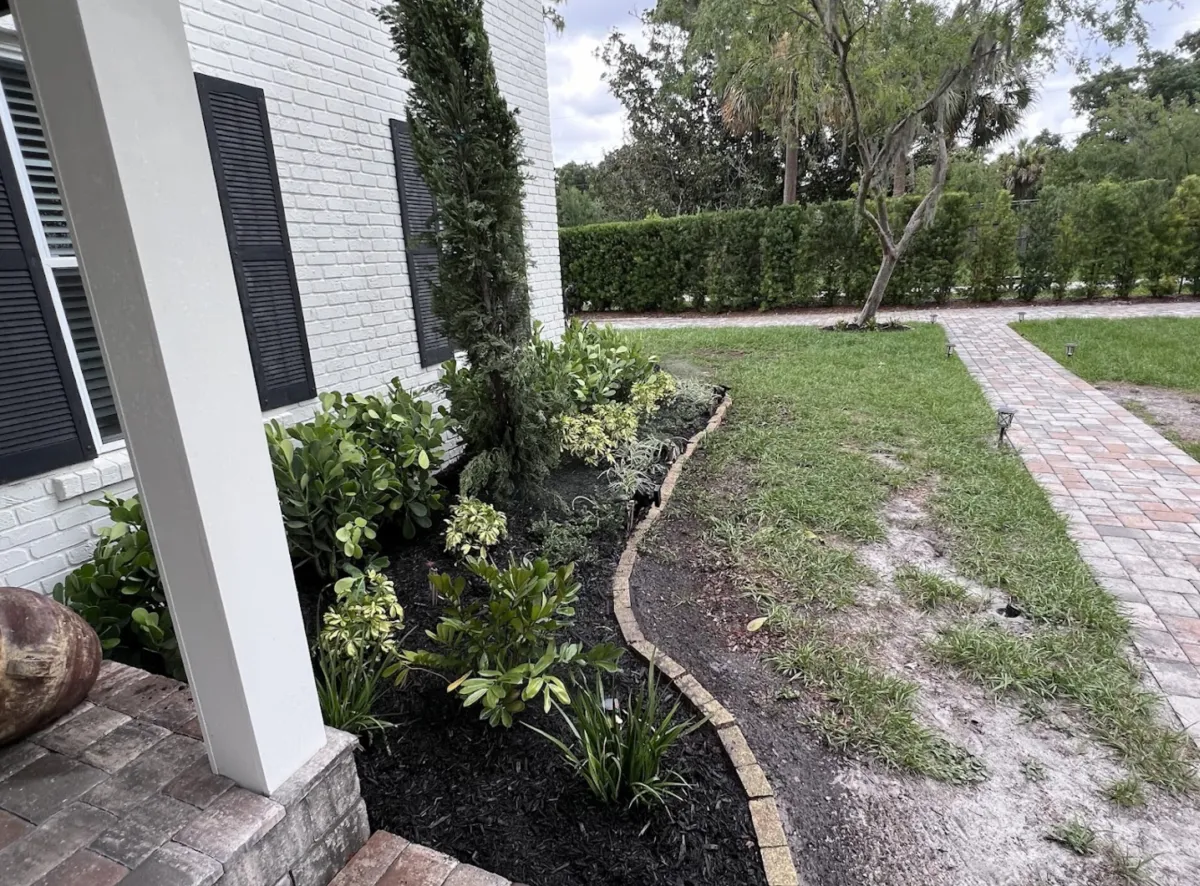
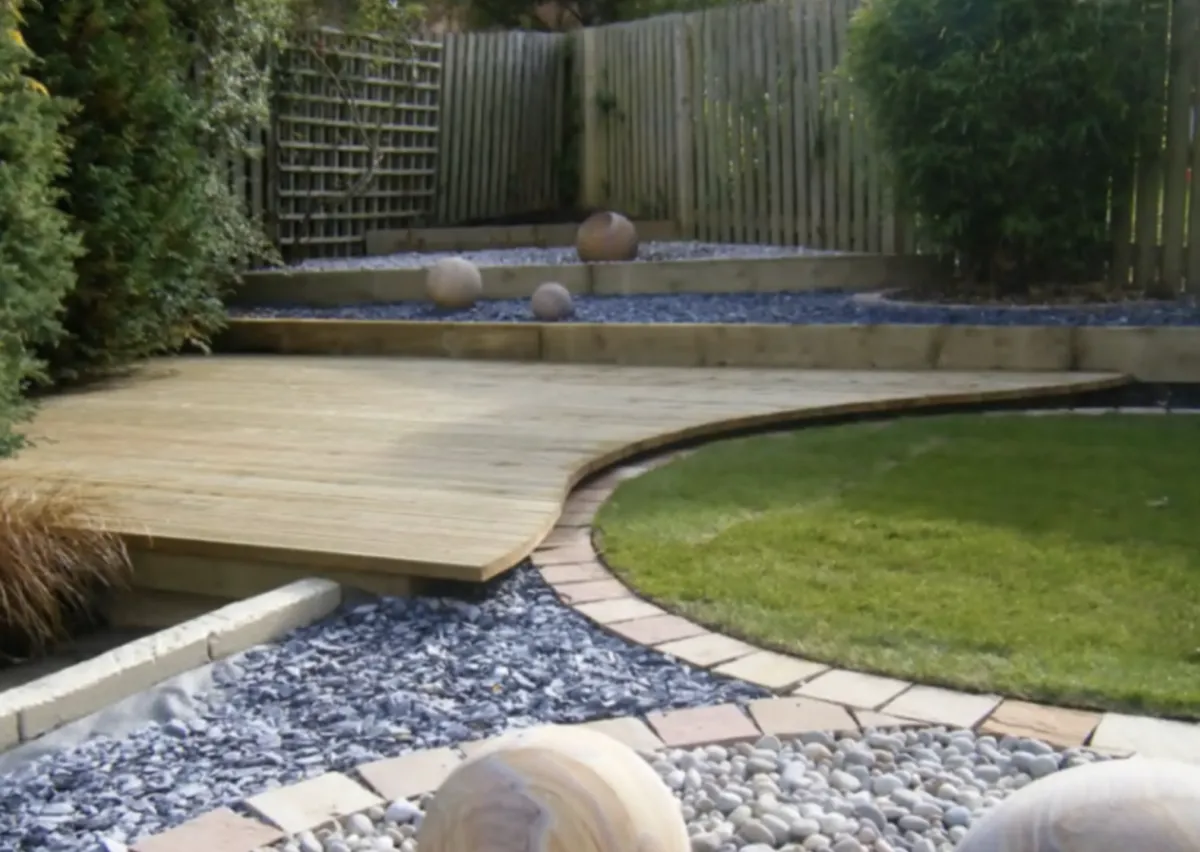
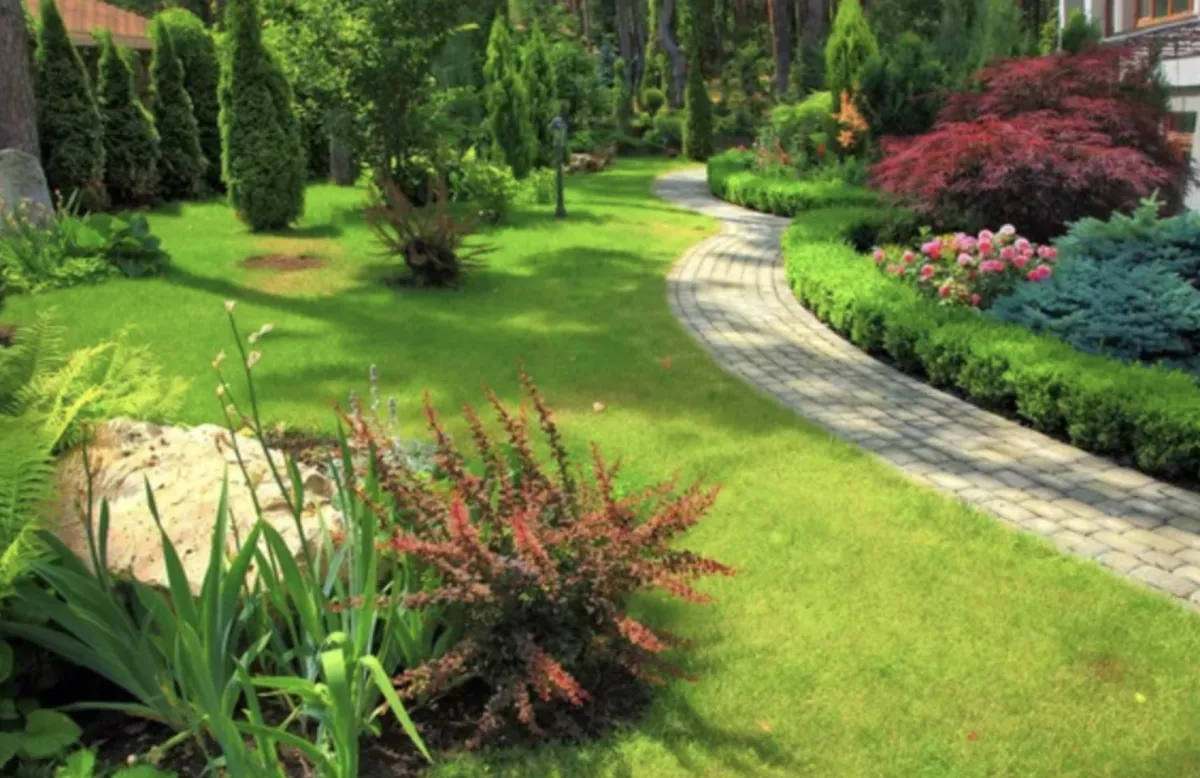

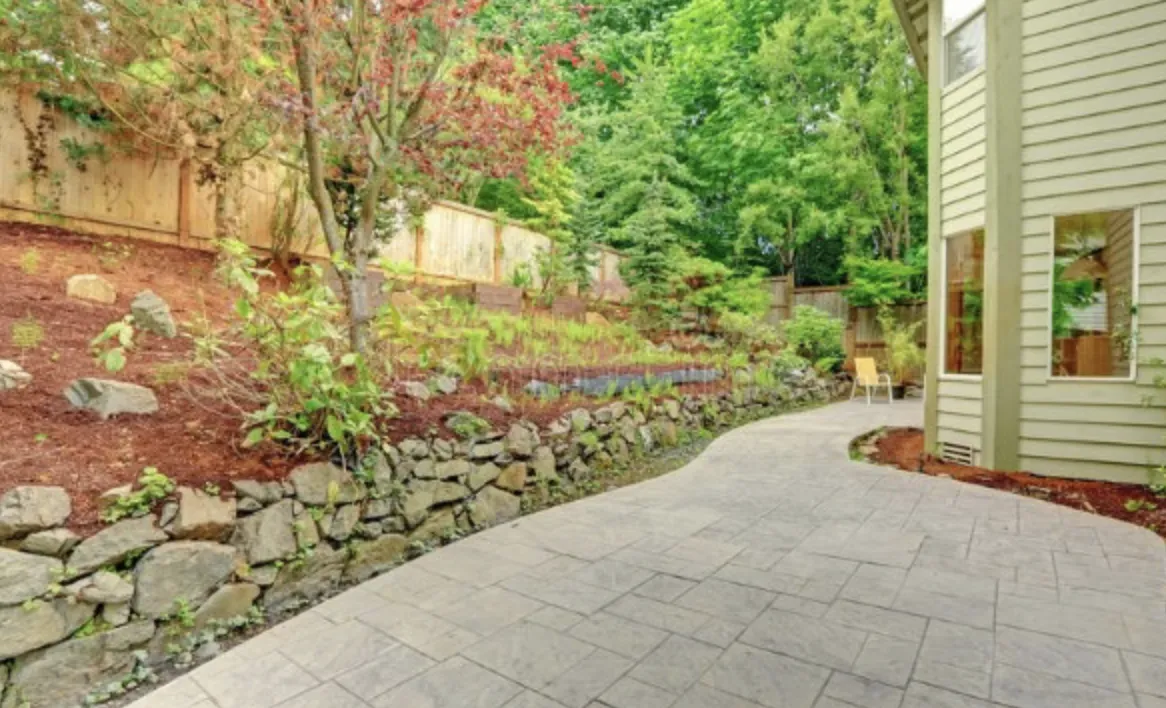

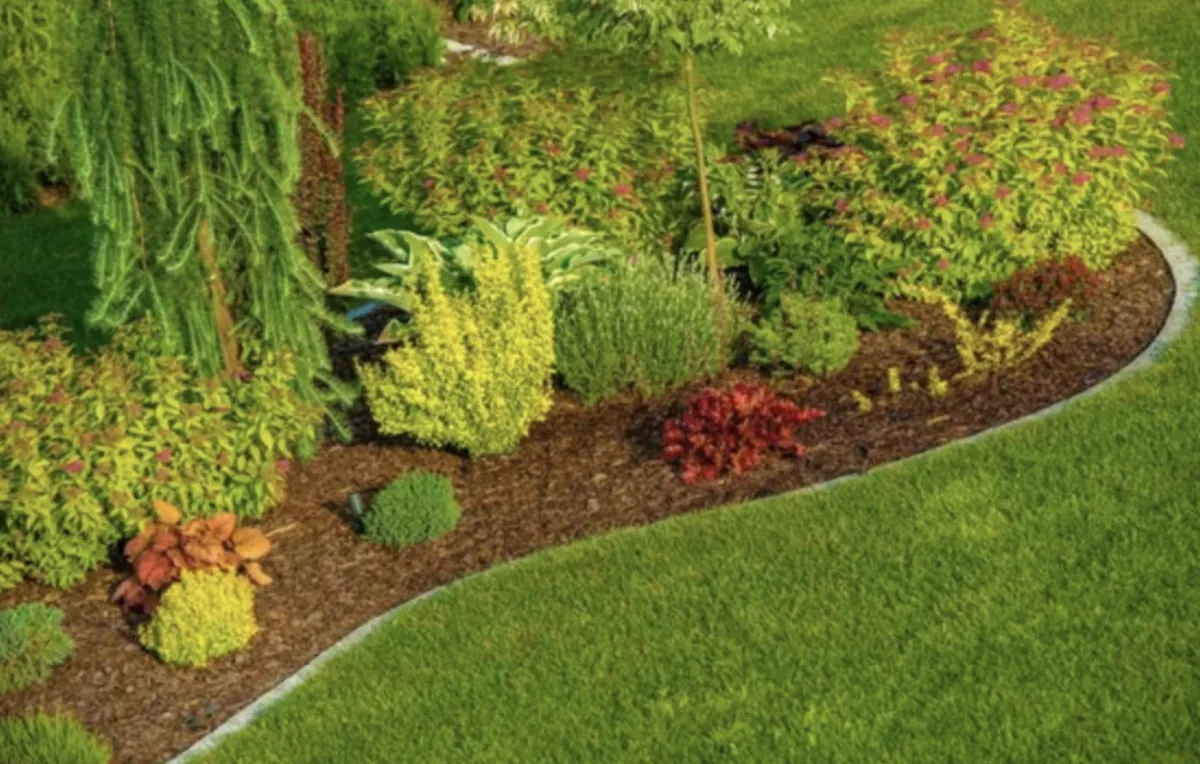

See What Our Customer Say About Us
Sarah M., Fort Worth, TX

“I can’t say enough good things about HF Landscape Design Fort Worth. They totally transformed our backyard into something out of a magazine — and they did it on time and within our budget. The team showed up early every day, cleaned up after themselves, and really listened to what we wanted. You can tell they actually care about the little details, not just getting the job done. Our neighbors keep stopping by asking who did the work — we tell everyone to call HF Landscape Design. Best decision we made for our home!”
Daniel R., Fort Worth, TX

“HF Landscape Design Fort Worth really blew us away. We had a plain front yard before, and now it looks like something you’d see in a design show. They helped pick the right plants for the Texas heat and even added lighting that makes the place glow at night. Super easy to talk to and very professional — they made the whole thing stress-free. We’d hire them again in a heartbeat.”
Megan & Tyler H., Fort Worth, TX

“Our backyard was just dirt and weeds before HF Landscape Design came in. Now it’s the spot where we spend every weekend with friends. They built a patio, added flower beds, and somehow made it all feel natural like it was always meant to be there. You can tell they love what they do — every detail was perfect. Highly recommend them to anyone in Fort Worth wanting a yard they’ll actually use.”
Get Professional Outdoor Kitchen Construction
Stop imagining backyard cooking capabilities and start building functional outdoor kitchens. Get professional construction coordinating appliances, utilities, and materials for Fort Worth conditions.
Call (817) 580-3329 to schedule outdoor kitchen construction consultation. We'll design custom cooking spaces meeting your needs and build them to code ensuring safety and functionality.
Service Areas: Fort Worth, Tanglewood, Ridglea Hills, River Crest, Westover Hills, Berkeley, Monticello, Mistletoe Heights, and surrounding communities.
Frequently Asked Questions
What is the average cost of landscape design?
Landscape design costs in Fort Worth typically range from $2,000 to $8,000 depending on property size—project complexity—level of detail required. Simple front yard designs for smaller properties might run $1,500 to $3,000. Comprehensive landscape plans for larger properties with detailed planting plans—hardscape designs—irrigation layouts—lighting plans usually cost $5,000 to $10,000 or more. We typically credit design fees toward installation if you proceed with us for the work. Design-only services cost more since we're not recouping fees through installation. Most clients in areas like Tanglewood or Westover Hills invest in detailed designs because their properties warrant professional planning. Newer neighborhoods with simpler yards might need less extensive design work.
What does it cost for a landscape design?
Design fees depend on project scope and what you need included. Basic conceptual designs showing general layout—plant groupings—hardscape locations run $1,500 to $3,000 for typical residential properties. Detailed construction-level plans with exact plant specifications—hardscape dimensions—grading plans—irrigation zone maps cost $4,000 to $8,000 or higher for complex projects. Commercial landscape design involves additional complexity and typically costs more. We discuss your specific needs during initial consultation and provide design fee quotes based on actual scope. Design fees get credited toward installation when you hire us for the work. Fort Worth properties with challenging conditions—significant slopes—drainage issues—often need more detailed planning which affects design costs.
What is the difference between a landscape architect and a landscape designer?
Landscape architects have formal education—state licensing—ability to stamp engineering drawings for permits. They handle complex projects requiring grading engineering—structural calculations—commercial site development—regulatory compliance. Landscape designers focus on plant selection—aesthetic layout—residential design without engineering components. In Fort Worth, landscape architects are required for certain commercial projects—retaining walls over specific heights—projects needing engineered drainage solutions. Residential projects usually work fine with landscape designers unless you've got significant slope issues—major grading needs—structures requiring engineering stamps. Landscape architects cost more but bring technical expertise for complex projects. Most residential landscapes in neighborhoods like Arlington Heights or Ridglea work well with landscape designers. Larger estates or properties with serious site challenges benefit from landscape architectural services.
Why is landscape design so expensive?
Professional landscape design involves considerable time—expertise—detailed planning work. Designers spend hours on site assessment—measuring—analyzing drainage and sun patterns—researching plant options for specific conditions. Creating scaled plans requires CAD software skills—design knowledge—understanding of Fort Worth's climate and soil conditions. Good designers prevent expensive installation mistakes—plant failures—drainage problems that cost far more to fix later. You're paying for years of experience knowing what works in North Texas clay soil—which plants survive July heat—how to design irrigation zones efficiently. Design fees also cover revisions—client meetings—coordination with contractors during installation. Cheap or free designs often mean cookie-cutter plans—inexperienced designers—or design costs hidden in inflated installation prices. Professional design upfront saves money long-term by getting things right the first time.
What is the rule of 3 in landscaping?
The rule of three suggests planting in odd-numbered groups—typically three plants—creates more natural and visually appealing arrangements than even numbers. Three plants or features create triangular compositions—visual interest—balance without formal symmetry. This applies to groupings of the same plant variety or repeating design elements throughout the landscape. In Fort Worth landscapes, you might see three crape myrtles anchoring a bed—three groupings of ornamental grasses—three boulders in a natural arrangement. The rule helps avoid the static look of paired plantings or single specimens. Works for plants of various sizes—repetition of colors—hardscape feature placement. Not a strict requirement but a helpful design principle creating more dynamic landscapes. We use the rule of three alongside other design principles—proper spacing—mature size consideration—Fort Worth-appropriate plant selection.
What is a realistic landscaping budget?
Realistic budgets for Fort Worth landscape projects typically start around $10,000 for basic front yard renovations and run $20,000 to $50,000 for complete front and backyard transformations with hardscaping. Simple refreshes—new plants—mulch—irrigation repairs might cost $5,000 to $8,000. Projects including patios—retaining walls—outdoor kitchens—extensive plantings easily reach $50,000 to $100,000 or more. Budget depends on property size—existing conditions—how much hardscape you want—plant material quality and maturity. Fort Worth's clay soil often requires additional drainage work affecting costs. Established neighborhoods like Monticello with mature landscapes might need less work than new construction in Walsh Ranch starting from dirt. Quality materials and experienced installation cost more upfront but last longer and perform better in our climate.
